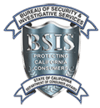How Can I Recognize if Someone is Being Cyberbullied?
As a licensed California private investigations firm, Kinsey Investigations has noticed an uptick in the number of inquiries we get about cyberbullying. Parents and educators are asking many questions, but one of the most important for anyone who regularly interacts with tweens or teens is “How can I recognize if someone is being cyberbullied?” Given how cyberbullying can actually lead many young people to become more withdrawn and share less about their lives, it can certainly feel like private detective work for parents to and teachers to investigate the problem. Here at Kinsey Investigations, we’ve written before about keeping children safe online, cyberbullying 101 and our computer and cell phone forensics services. And because we’re a Los Angeles private detective agency dedicated to serving our community, we have compiled the following information to help the people parenting and educating our community’s children recognize when someone is being cyberbullied.
Cyberbullying and How Young People Respond
For parents and educators who grew up prior to the rise of social media, it’s important to continue learning about cyberbullying and stay up to date on the changing landscape of popular social and messaging apps, online gaming and other Internet platforms where young people communicate. Some parents may believe that as long as they keep their tweens and teens from registering for accounts on TikTok, Snapchat, etc., they’re shielding them from the risks of cyberbullying. Unfortunately, modern cyberbullies target their victims in many other ways beyond mainstream social media, including online gaming and group or private messaging apps such as Whatsapp, Discord or Signal.
Savvy parents and teachers asking “How can I recognize if someone is being cyberbullied?” should watch for signs from the children in their care. Even young people who often confide in the trusted adults in their lives may not share these experiences for a number of reasons including not wanting increased monitoring or restrictions of their device use and/or fear of further retaliation from their online tormentors if adults decide to get involved. Due to just how damaging and dangerous cyberbullying can be, it’s vital for parents and educators to remain vigilant and keep the lines of communication with young people as open and honest as possible.
Victims of cyberbullying may respond in a broad range of ways, but some of the most common reactions to cyberbullying include:
- Becoming more withdrawn from family and friends, at home or at school
- Increased anxiety or irritability, especially during or after using their phones or computers or participating in online gaming
- Sudden weight loss or gain
- Nervousness about or not wanting to go to school
- Becoming more angry or even acting out aggressively
- Suddenly evasive about discussing their social lives or their online activities
- Seeming more depressed including many of the classic signs of depression such as:
- changes in appetite or sleep patterns
- losing interest in friends, school, or hobbies
- loss of concentration
- lack of energy
- talk of suicide
Investigating Cyberbullying Before It’s Too Late
Just as everyone is different, every young person experiencing cyberbullying will react somewhat differently. Some tweens and teens suffering cyberbullying will actually become less communicative or more secretive about their online interactions specifically. So, adults should pay close attention to changes in a young person’s behavior and trends that continue over a period of time. If a parent or educator notices even a few of these changes in a teen or tween’s behavior that don’t regulate fairly quickly, it’s worth looking into whether the young person is being cyberbullied. The sooner an adult can intervene and take steps to stop the cyberbullying activity, the better the chances for recovery and healing for the suffering child.
As an L.A. private detective agency, Kinsey Investigations deeply values everyone in our community. From Bel Air and Brentwood, Malibu and Beverly Hills, to the heart of Los Angeles and Long Beach, our children are our future, and it’s every adult’s responsibility to safeguard their wellbeing. Asking, “How can I recognize if someone is being cyberbullied?” is an important first step for not only parents and teachers, but uncles, aunts, grandparents, youth coaches and anyone else who plays a significant role in the lives of young people. In the case of cyberbullying, Kinsey Investigations suggests everyone take a page out of our investigation services book and be vigilant for the sake of our community’s children.























